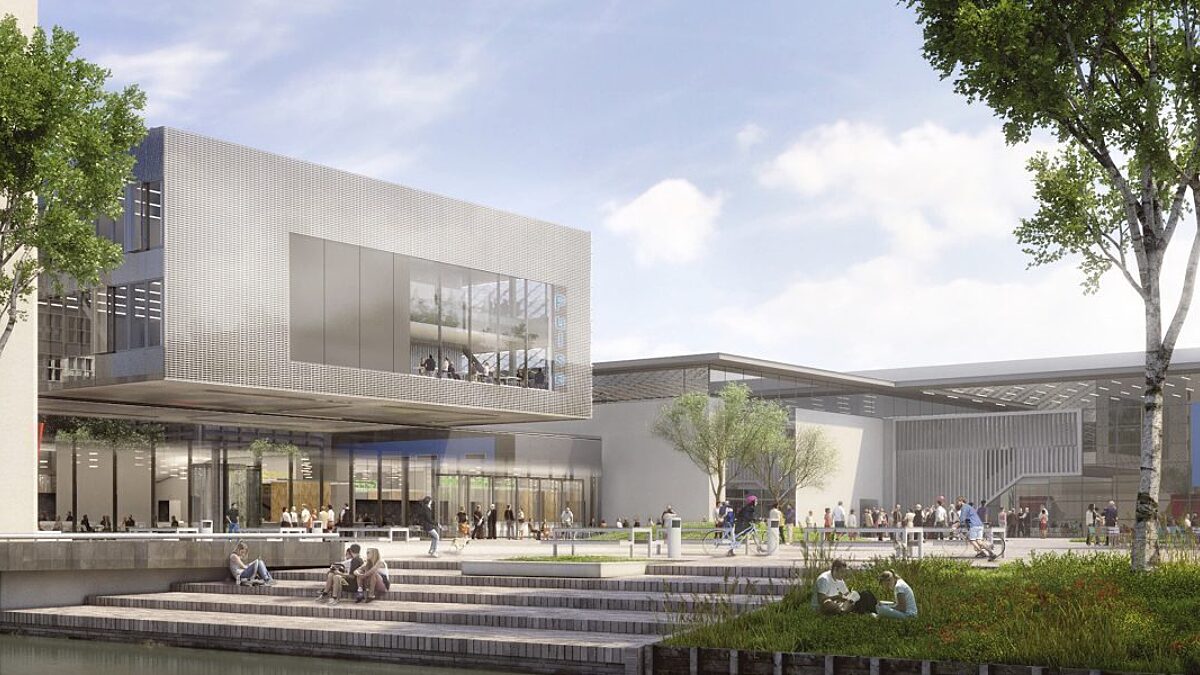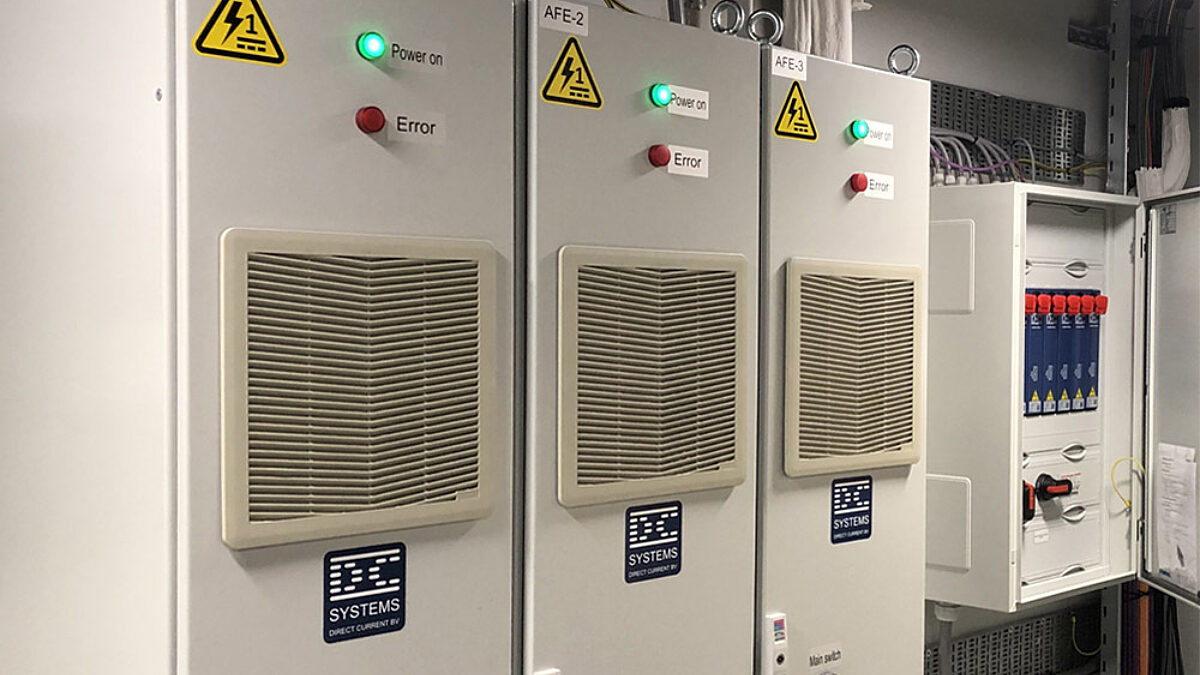Pulse Energy Neutral Building at TU Delft
The very first building on a university campus in the Netherlands that is energy neutral.

On TU Delft's campus sits Pulse, the first energy neutral university building in the Netherlands. The installed DC system ensures that DC generated by solar cells can be used directly, therefore, practically no energy loss, for laptops, tablets, smartphones, lighting and emergency lighting inside the building.
In addition, a DC net saves on materials like heavy transformers. Furthermore, it simplifies the transition to the so-called "smart grids", linking generators and users of electricity in the future, and keeping the supply and demand of electric power in balance.
Secure 350V Smart DC Grid
Direct Current BV supplied the technology and the DC system to connect everything that works on DC to a secure 350V DC grid. The DC system and the Current/OS safety system is an innovation by Direct Current B.V. Almost all devices in the building operate on DC, from the 490 solar panels (750 m²) on the roof, heat storage in the ground, the LED lighting, and USB connection points for computers, mobile phones, and more. By directly connecting all DC products to the smart DC grid, signficant energy and materials are saved.
The implementation of the DC system was done in collaboration with the installer Kuijpers. The smart DC net at 350VDC in this building consists of:
- USB-C 100W connectors
- 350V LED Drivers for lighting
- 150kW solar panels
- Current Routers on Current/OS on 350V LVDC
- 150kW AC/DC network station based on 3 Active Front End (AFE) connected in parallel.

DC system based on AC/DC Active Front End (AFE) converters, Current Routers, and Current/OS on 350V LVDC.
Sustainability in Design
In addition to teaching rooms, the building offers space on the ground floor for catering establishments with approximately 200 seats for relaxation and self-study. An intelligent building management system ventilates, illuminates, cools and heats the various rooms in Pulse depending on usage. The façade openings have been designed in such a way that optimum use is made of daylight. This means less need for artificial light, and therefore less energy consumed.
Prof.dr.ir. Andy van den Dobbelsteen, Professor of Climate Design & Sustainability at the Faculty of Architecture, was involved in the development to realize this energy neutral system. Together with students and teachers, the design was realized in collaboration with Royal HaskoningDHV (construction & project management), Valstar Simonis (technical installations) and DGMR (building physics, sustainability and fire safety). The combination Hurks (contractor) and Kuijpers (installer) realized the building.
Read more about the Pulse building at Delft University of Technology website.